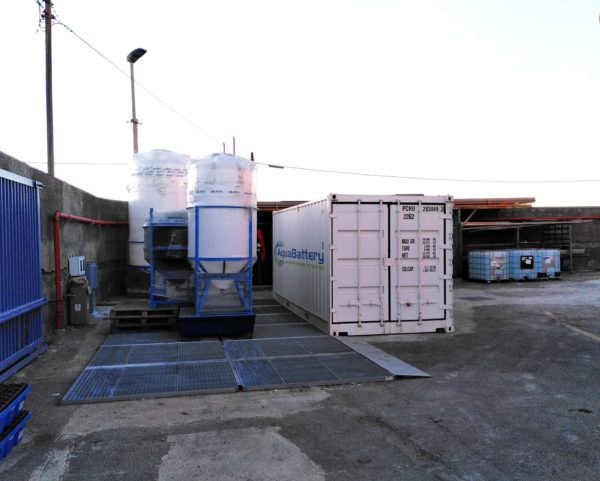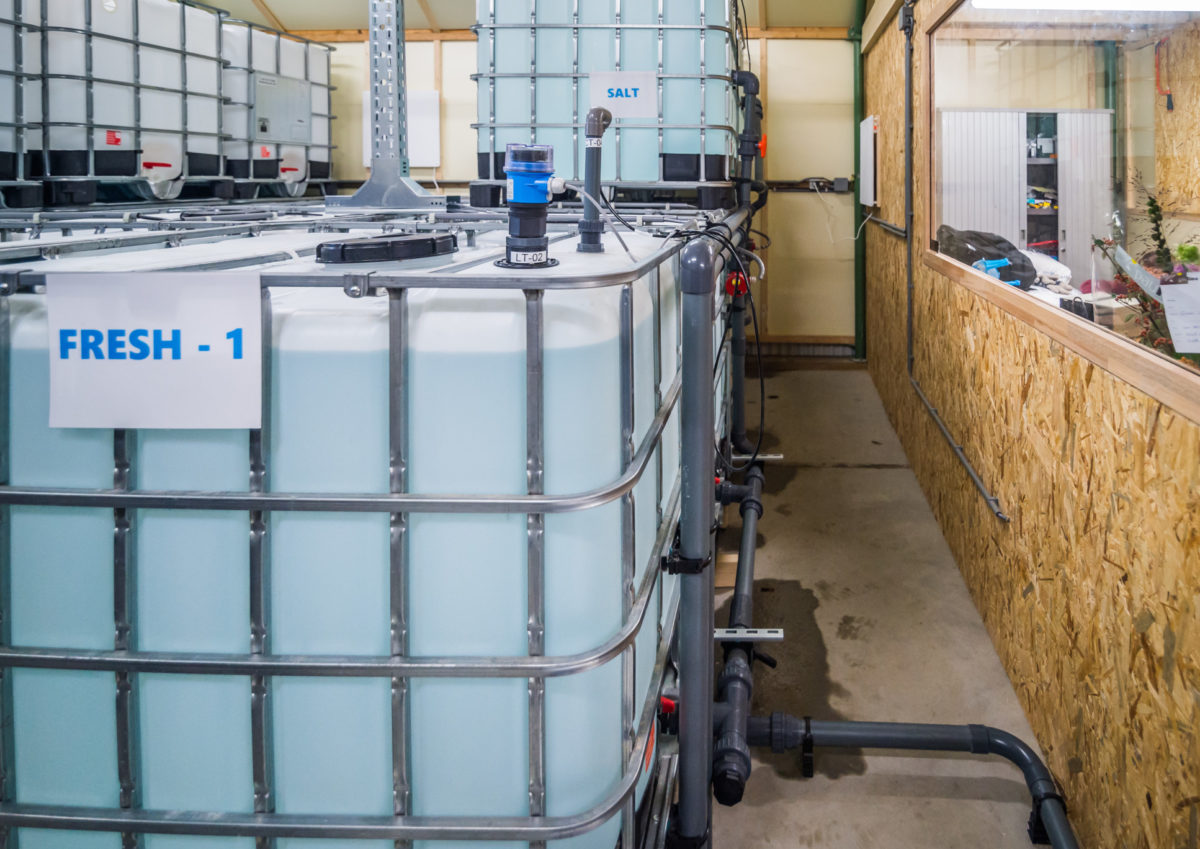Dutch start-up AquaBattery has been awarded €2.5 million in funding from the European Innovation Council’s (EIC) Accelerator to develop its long-duration energy storage technology based on saltwater.
The company's patented storage technology uses just saltwater as the storage medium and is described as a flow battery that is able to independently amend power (kW) and energy (kWh) capacity. The proposed solution is also said to be low-cost, highly scalable and sustainable, as it uses only water and table salt, with its storage capacity being expandable by just adding water reservoirs or using larger tanks.
The battery system utilizes three storage tanks, one with fresh water, one with concentrated salt water and one with diluted salt water, and also relies on membrane stacks. During the charging phase, the diluted salt water is split into concentrated salt water and fresh water in the membrane stack and stored separately. The separation is achieved through electrodialysis (ED), which is a separation process in which charged membranes and electrical potential differences are used to separate ionic species from an aqueous solution and other uncharged components.

Image: Imperial College London
In the discharging phase, the two streams are combined and the resulting energy is converted to electricity with the help of the membrane stack through reverse electrodialysis (RED), which is a technology to generate electricity from the salinity difference between two solutions, for example, seawater and river water.
“AquaBattery’s solution could provide virtually unlimited storage capacity from eight hours up to days, weeks or even seasonally,” reads a statement from the Imperial College London, with which the Dutch start-up is cooperating. “The fund will provide around €2.5 million in grant funding to AquaBattery, with options for direct equity investment of up to €15 million depending on their needs. The grant will enable the team to speed up R&D and product development and bring forward commercialization of AquaBattery to 2025 or earlier.”
This content is protected by copyright and may not be reused. If you want to cooperate with us and would like to reuse some of our content, please contact: editors@pv-magazine.com.




Interesting article
What is the efficiency of this process? This is critical information to such a technology.